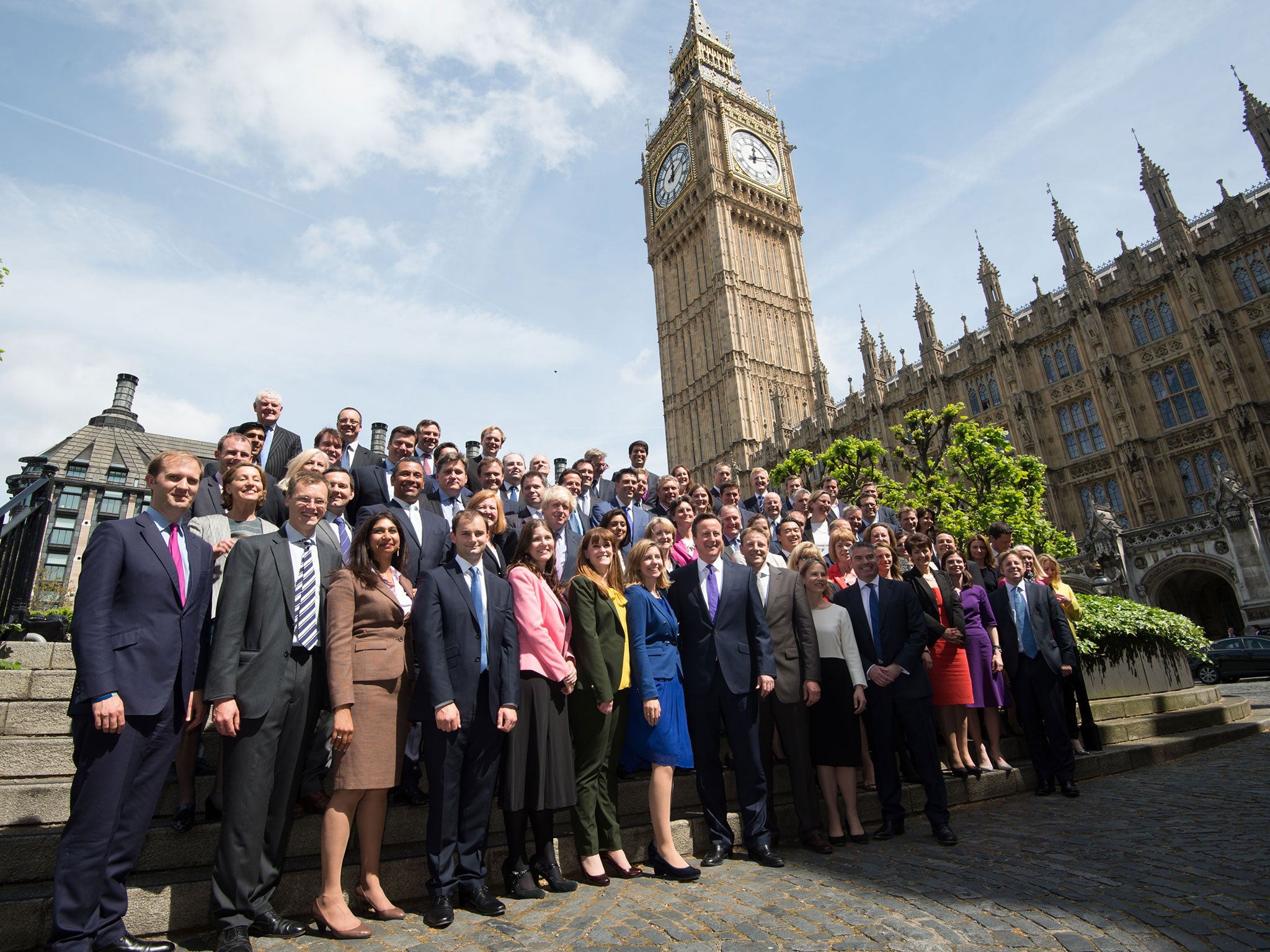David Cameron paves way for shake-up of the BBC as licence fee critic John Whittingdale joins all-Tory Cabinet
New Culture Secretary John Whittingdale said charge is ‘worse than poll tax’

David Cameron has paved the way for a radical shake-up of the BBC as he appointed a new Cabinet, which he will order today to pursue “blue-collar Conservatism” to help working people.
The Prime Minister promoted several women and acolytes of George Osborne as he named his first all-Tory Cabinet, increasing the Chancellor’s grip on the Government – and his chances of succeeding Mr Cameron, who will stand down at or before the 2020 election.
The most eye-catching appointment was that of John Whittingdale, a veteran Tory MP and former aide to Margaret Thatcher, as Culture Secretary. He knows the issues facing the BBC well after chairing the Commons Culture Select Committee in the last parliament and will review its Royal Charter, which comes up for renewal at the end of next year.
Mr Whittingdale is expected to make changes in the way the BBC is funded and governed. He has described the flat-rate, £145.50-a-year licence fee as “worse than the poll tax” and suggested it could become “unsustainable” in the long term. He said last autumn: “I think there’s quite an attractive option of linking it to a specific household tax – maybe council tax.”
Although the BBC said it was “looking forward” to working with Mr Whittingdale, Ben Stephenson, the BBC’s outgoing controller of drama commissioning, told the Radio Times that the Corporation was at a “tipping point” and would have to cut its drama output if the licence fee were cut. “It really can’t keep cutting,” he said. “We do need to increase the licence fee.”
Steven Barnett, professor of communications at the University of Westminster, said Mr Whittingdale’s appointment could result in a “smaller BBC”, which would be “disastrous”, adding: “He is a known sceptic about the BBC in general and the licence fee in particular. I suspect those who value the BBC and its unique cultural, democratic and economic contribution to the UK will have a fight on their hands as we approach charter renewal.”
Although more than half of cabinet ministers stayed in the same job, Tory sources said that would allow them to “get on with the job” and not be dependent on their civil servants while they played themselves in.
Amber Rudd was promoted to Energy and Climate Change Secretary, while Priti Patel and Anna Soubry will attend the Cabinet as the employment and small business minister respectively. Sajid Javid was promoted from Culture to Business Secretary. Robert Halfon, a champion of “white-van Conservatism”, was made a deputy Tory chairman as Mr Cameron moved to end the party’s image as being “for the rich”.
Appointments in David Cameron's Tory government
Show all 7At its first meeting Mr Cameron will tell his new Cabinet: “This is a government for working people. Every decision we take, every policy we pursue, never forget: we’re here to give everyone in our country the chance to make the most of their life. The pundits might call it ‘blue-collar Conservatism’, others being on the side of hard-working taxpayers.”
Three Eton-educated ministers will attend Cabinet – Mr Cameron, Oliver Letwin, head of the Cabinet Office and Boris Johnson, the Mayor of London, who will attend “political” sessions when civil servants are not present.
The Sutton Trust said half the new Cabinet attended a fee-paying school, compared to 7 per cent of the population, while half the Cabinet holds a degree from Oxford or Cambridge. However, 43 per cent of cabinet ministers went to comprehensive schools – double the 21 per cent in the Coalition cabinet.
Nine out of 28 ministers now attending the Cabinet are women, in line with Mr Cameron’s 2009 pledge that a third of his ministerial team would be female.
Mr Cameron was greeted with thunderous applause when he appeared before a meeting of the 1922 Committee of Conservative MPs.
The Prime Minister told reporters his priorities for his second term in office were to establish the Tories as the “real party for working people”, to advance “compassionate Conservatism” and “bring the country together”.
He disclosed that he had texted Nick Clegg on election day and had offered his commiserations to the former Deputy Prime Minister when at the VE Day commemorations. He added: “It’s quite a brutal business, politics.”
Mr Osborne said after the meeting: “It was an incredible reception, a meeting unlike any I have ever attended in all the years I have been a Conservative.” One MP said: “The Prime Minister walks on water at the moment. I have never known a meeting like it.”
Subscribe to Independent Premium to bookmark this article
Want to bookmark your favourite articles and stories to read or reference later? Start your Independent Premium subscription today.

Join our commenting forum
Join thought-provoking conversations, follow other Independent readers and see their replies